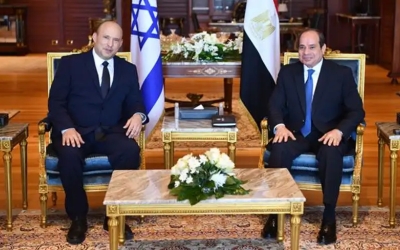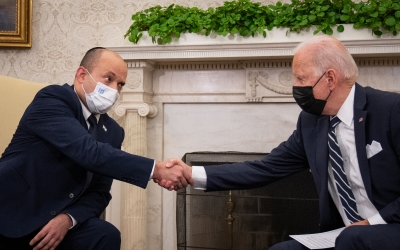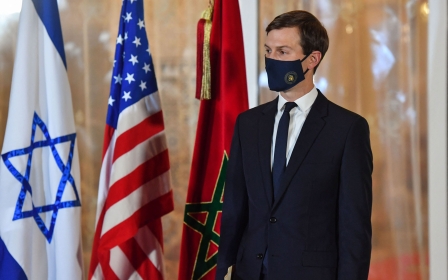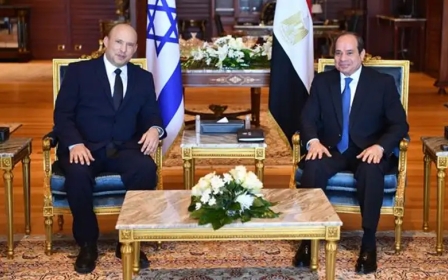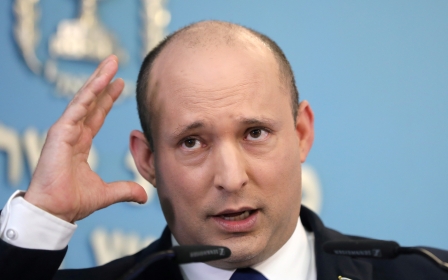UAE's al-Otaiba claims Israel normalisation deal 'salvaged two state solution'
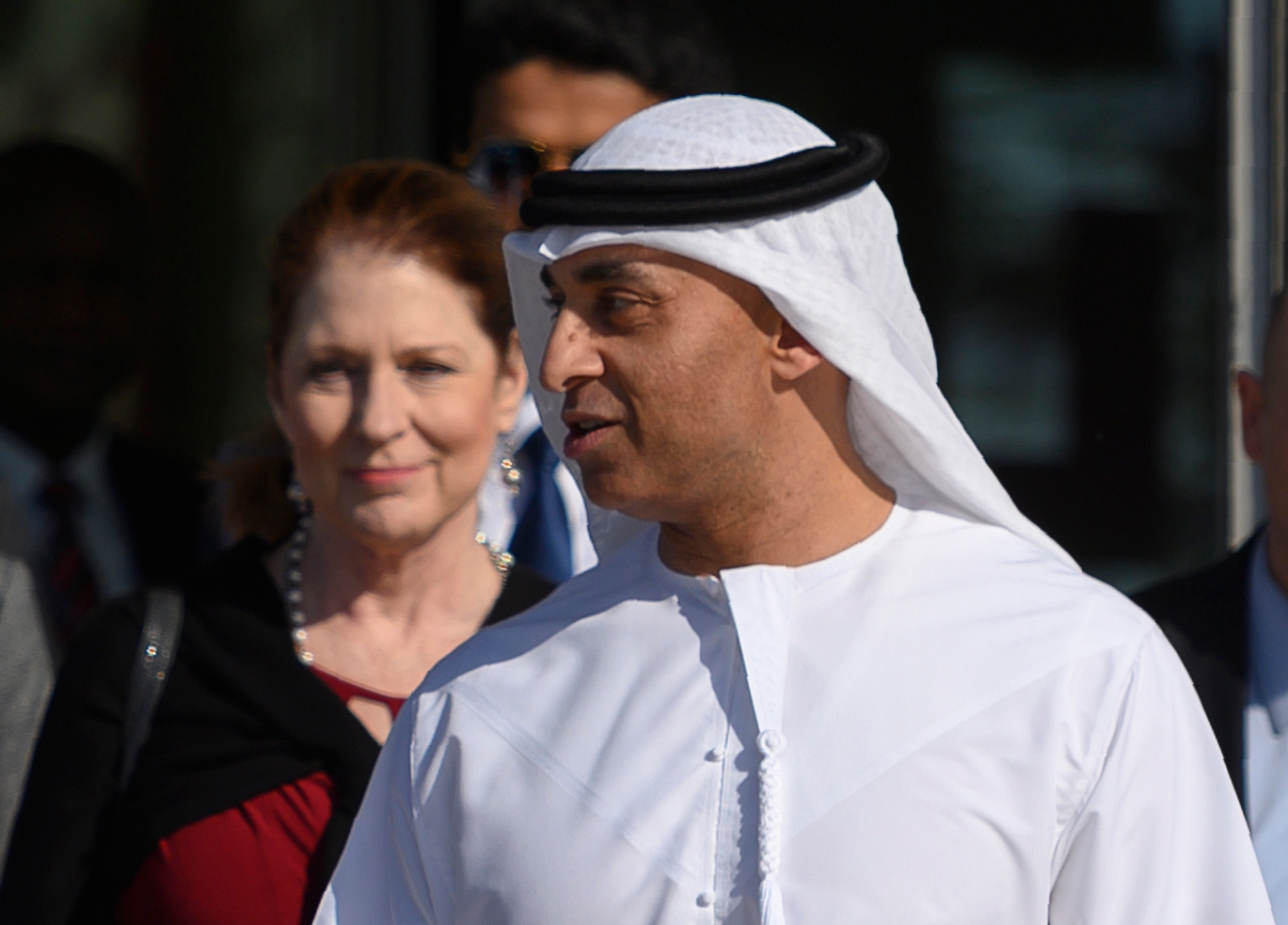
The UAE ambassador to the United States claimed on Monday that his country's decision to normalise ties with Israel "salvaged the two-state solution," at an event marking the first anniversary of the accord.
Speaking at an event hosted by the Wilson Center in Washington DC, Yousef al-Otaiba claimed that if the oil-rich nation "had not successfully reached the Abraham accords… Israel would have probably annexed part of the Palestinian territories. The two-state solution would be dead.
"This is probably the biggest concession that was reached for the Palestinian cause in the last 25 years," he said.
Brought together by shared unease about Iran, the UAE and Bahrain normalised relations with Israel last year under the "Abraham accords" crafted by the administration of then-US President Donald Trump. Sudan and Morocco also decided to establish ties with Israel after receiving several incentives from the Trump administration.
"I think it [the Abraham accords] takes us a step closer to comprehensive peace in the region and sets an example for others within the region," said Rashid bin Abdullah al-Khalifa, Bahrain's ambassador to the US.
At the time, the accords were partially billed as a way to prevent Israel's annexation of parts of the occupied West Bank. While Israel has held off on those plans, for now, there has been no commitment for the future by the government of Israeli Prime Minister Naftali Bennett.
For years, the Palestinians had said that normalisation would weaken a long-standing pan-Arab position that only an Israeli withdrawal from occupied territories - and acceptance of Palestinian statehood - would allow for normal relations with the Arab countries.
The deals came under further strain earlier this year during Israel's most recent escalation with Hamas in May which resulted in the deaths of around 277 Palestinians in Gaza and the West Bank and 13 people in Israel.
Al-Khalifa claimed that the accords allowed tensions to defuse faster than in previous conflicts.
"I think that there was an important role for countries in the accords, that played a significant role in reducing tensions," he said.
Deepening ties
Israel established diplomatic agreements with Jordan and Egypt decades ago, but those deals failed to lead to broader normalisation in public and business life, with a poll by Arab Barometer showing that only 3 percent of Jordanians supported the recent normalisation agreements.
But since last year's accords, the signatories have been eager to promote the expansion of both public and business relations.
"Obviously, the shift in mindset is probably the biggest thing that we are witnessing within the communities today," al-Khalifa said. "We've seen trade grow, bilateral relations fostered [and] people-to-people relationships being established and growing with time."
While Bahrain's trade with Israel is still small, trade between the UAE and Israel has climbed in the year since normalization from just over $50m to roughly $613m according to Israel's Central Bureau of Statistics.
The UAE and Israel signed a tax treaty in May and the two countries witnessed the biggest business deal to date this summer when Abu Dhabi's state-owned investment fund Mubadala announced it intended to acquire a $1.1bn stake in an Israeli gas field.
Bloomberg recently reported that the economy minister of the UAE hoped to see trade ties with Israel grow to over $1 trillion in the next decade.
"It is important to recognise just how significant this moment really is," Gilad Erdan, Israel's ambassador to the UN, said at the event.
"We chose to work together... to promote mutually beneficial economic activity and to face the larger challenges in the Middle East as a united front."
Regional Security
Although the accord countries formally established ties last year, many of the countries had already been cooperating in the defense and security realm for years.
The countries were not just brought together by economic ties, but a shared concern over Iran's actions in the region.
The previous Trump administration was seen as supportive of both the UAE and Israel and pursued an aggressive "maximum pressure campaign" on Iran which was welcomed by those countries.
The Biden administration is seeking to reenter the Iranian nuclear deal which the Trump administration pulled out of and has urged Iran's new president to return to talks.
Otaiba said he believed there was broad bipartisan support in Washington for the normalisation agreements.
"In all of my conversations with the Biden administration this has been welcomed, this has been supported, this has been a great breakthrough…Now we have to demonstrate that support," he said.
But speaking on the sidelines of the event, Erdan told the Times of Israel that while the White House believed in a two-state solution, the Israeli government "thinks differently."
"The current Israeli government thinks differently and believes that it's not currently achievable," Erdan said. "Even the Biden administration, when they speak with us, they recognise that it’s not something that currently can be achieved."
Erdan said that, in the meantime, both Israel and the US were focusing on advancing economic projects for the Palestinians.
"The [two-state] option is not on the table, so we're focused on what unites us rather than what divides us," the ambassador said.
Middle East Eye delivers independent and unrivalled coverage and analysis of the Middle East, North Africa and beyond. To learn more about republishing this content and the associated fees, please fill out this form. More about MEE can be found here.


